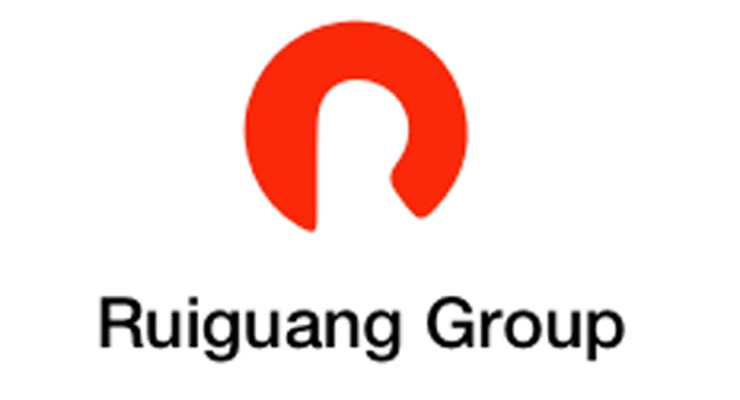09.03.21
Dalian, China
www.ruiguangnonwoven.com
2020 Nonwovens Sales: $320 million
Key Personnel
Yuan Ming Gu, owner; Zuwei Gu, CEO; Jingxian Cui, CFO
Plants
Dalian, China
Processes
Spunbond, spunlace, meltblown, airlaid
Major Markets
Hygiene, medical, automotive, household, construction, industrial, personal care
Nonwovens sales at Dalian Ruiguang Nonwoven Group jumped to $320 million following investment in three new lines—one spunbond and two spunlaced—adding an additional 17,000 tons of capacity annually as well as demand spikes for spunlace disinfectant wipes, meltblown, spunbond and SF medical protective apparel. All of the company’s spunlace and spunmelt lines operated at full capacity in 2020.
In addition to these three lines, in 2020 Ruiguang added one N99 meltblown line and a wetlaid pulp composite spunlace production line to meet demand in the filtration and flushable wipes markets, respectively.
The new meltblown line, which was imported from Germany, will allow more sophisticated N99 materials for air and filtration applications unlike its existing line which was not as sophisticated.
Meanwhile, Ruiguang’s new fully degradable pulp wetlaid composite spunlace production line adopts European imported production lines and combines nonwoven carding technology with wet-laid paper technology. Products made on this line contain more than 50% wood pulp content so that the product can be completely degraded at a more reasonable cost. The design concept of environmental protection and green products has been adopted. After European legislation concerning single use plastics—including some varieties of wipes—various countries have successively introduced similar policies for disposable products.
Spunlace nonwovens, one of Ruiguang’s main product areas, has seen significant growth in China and globally because the Covid-19 epidemic has increased peoples’ cleaning habits in public spaces. This led to an increase in the use of disinfectant wipes. Additionally, younger consumers are more likely to use products like toilet wipes, kitchen wipes and floor wipes, which have grown significantly.
However, excessive investment globally has created an oversupply situation as even heightened growth cannot consume all of the new nonwovens being added. Even in China, with demand growing quickly, investment is outpacing this demand. This will force manufacturers to develop new application areas, carry out equipment transformation, and develop new technologies, according to executives. The nonwoven industry in China has reached a stage of re-integration.
Currently, Ruiguang has just one manufacturing site in Dalian, China where all of its operations are concentrated. This facility will contain 21 production lines once the most recently announced investments are completed and it will serve customers all over the world. However, the company would like to eventually invest in foreign countries to help overcome transportation challenges and build Ruiguang into an enterprise with an international vision, and international operations is still the goal, according to the company.
www.ruiguangnonwoven.com
2020 Nonwovens Sales: $320 million
Key Personnel
Yuan Ming Gu, owner; Zuwei Gu, CEO; Jingxian Cui, CFO
Plants
Dalian, China
Processes
Spunbond, spunlace, meltblown, airlaid
Major Markets
Hygiene, medical, automotive, household, construction, industrial, personal care
Nonwovens sales at Dalian Ruiguang Nonwoven Group jumped to $320 million following investment in three new lines—one spunbond and two spunlaced—adding an additional 17,000 tons of capacity annually as well as demand spikes for spunlace disinfectant wipes, meltblown, spunbond and SF medical protective apparel. All of the company’s spunlace and spunmelt lines operated at full capacity in 2020.
In addition to these three lines, in 2020 Ruiguang added one N99 meltblown line and a wetlaid pulp composite spunlace production line to meet demand in the filtration and flushable wipes markets, respectively.
The new meltblown line, which was imported from Germany, will allow more sophisticated N99 materials for air and filtration applications unlike its existing line which was not as sophisticated.
Meanwhile, Ruiguang’s new fully degradable pulp wetlaid composite spunlace production line adopts European imported production lines and combines nonwoven carding technology with wet-laid paper technology. Products made on this line contain more than 50% wood pulp content so that the product can be completely degraded at a more reasonable cost. The design concept of environmental protection and green products has been adopted. After European legislation concerning single use plastics—including some varieties of wipes—various countries have successively introduced similar policies for disposable products.
Spunlace nonwovens, one of Ruiguang’s main product areas, has seen significant growth in China and globally because the Covid-19 epidemic has increased peoples’ cleaning habits in public spaces. This led to an increase in the use of disinfectant wipes. Additionally, younger consumers are more likely to use products like toilet wipes, kitchen wipes and floor wipes, which have grown significantly.
However, excessive investment globally has created an oversupply situation as even heightened growth cannot consume all of the new nonwovens being added. Even in China, with demand growing quickly, investment is outpacing this demand. This will force manufacturers to develop new application areas, carry out equipment transformation, and develop new technologies, according to executives. The nonwoven industry in China has reached a stage of re-integration.
Currently, Ruiguang has just one manufacturing site in Dalian, China where all of its operations are concentrated. This facility will contain 21 production lines once the most recently announced investments are completed and it will serve customers all over the world. However, the company would like to eventually invest in foreign countries to help overcome transportation challenges and build Ruiguang into an enterprise with an international vision, and international operations is still the goal, according to the company.


